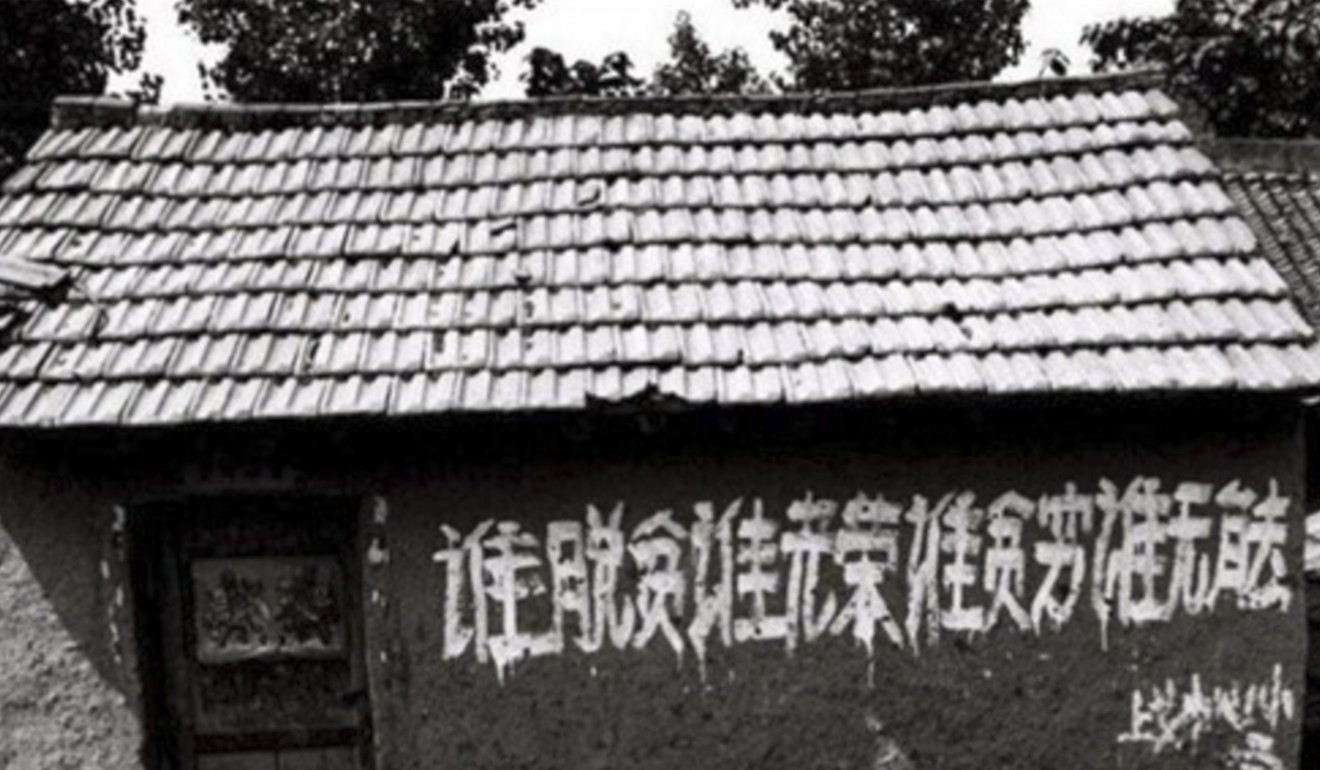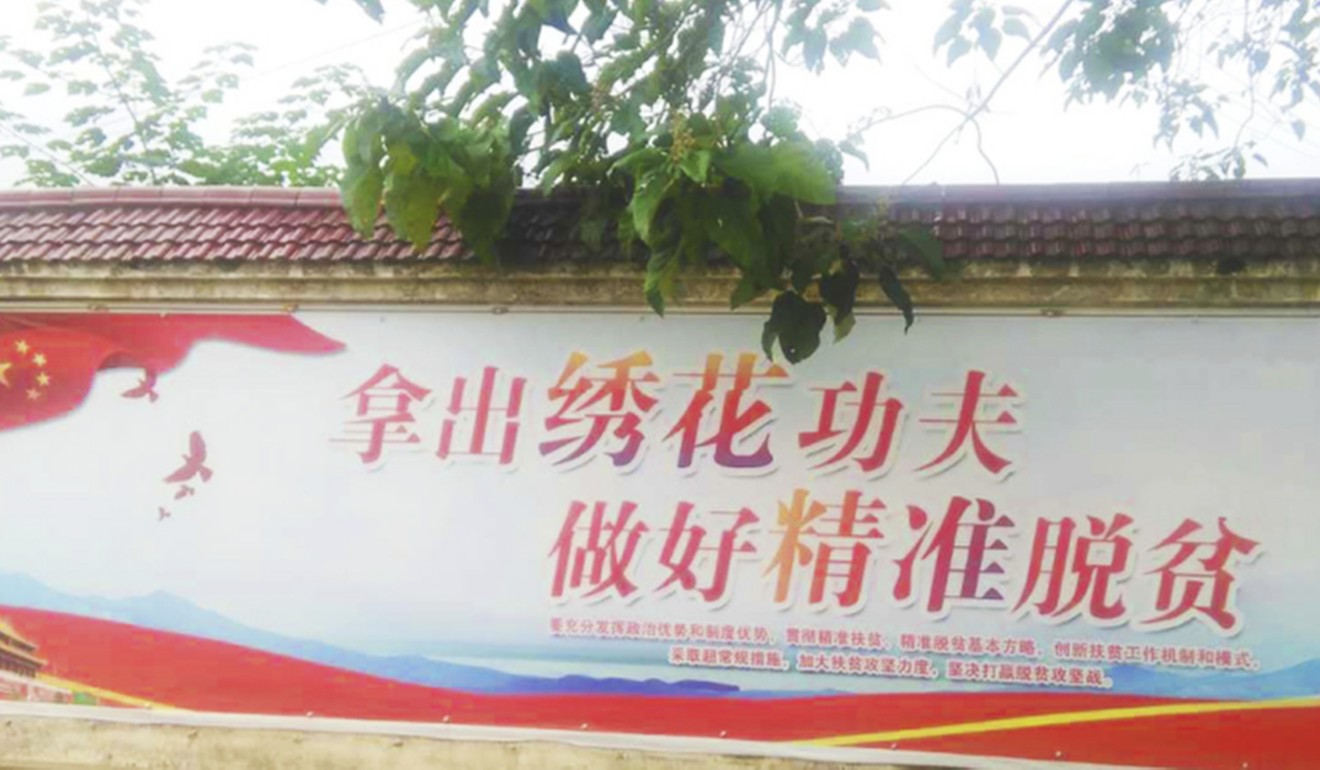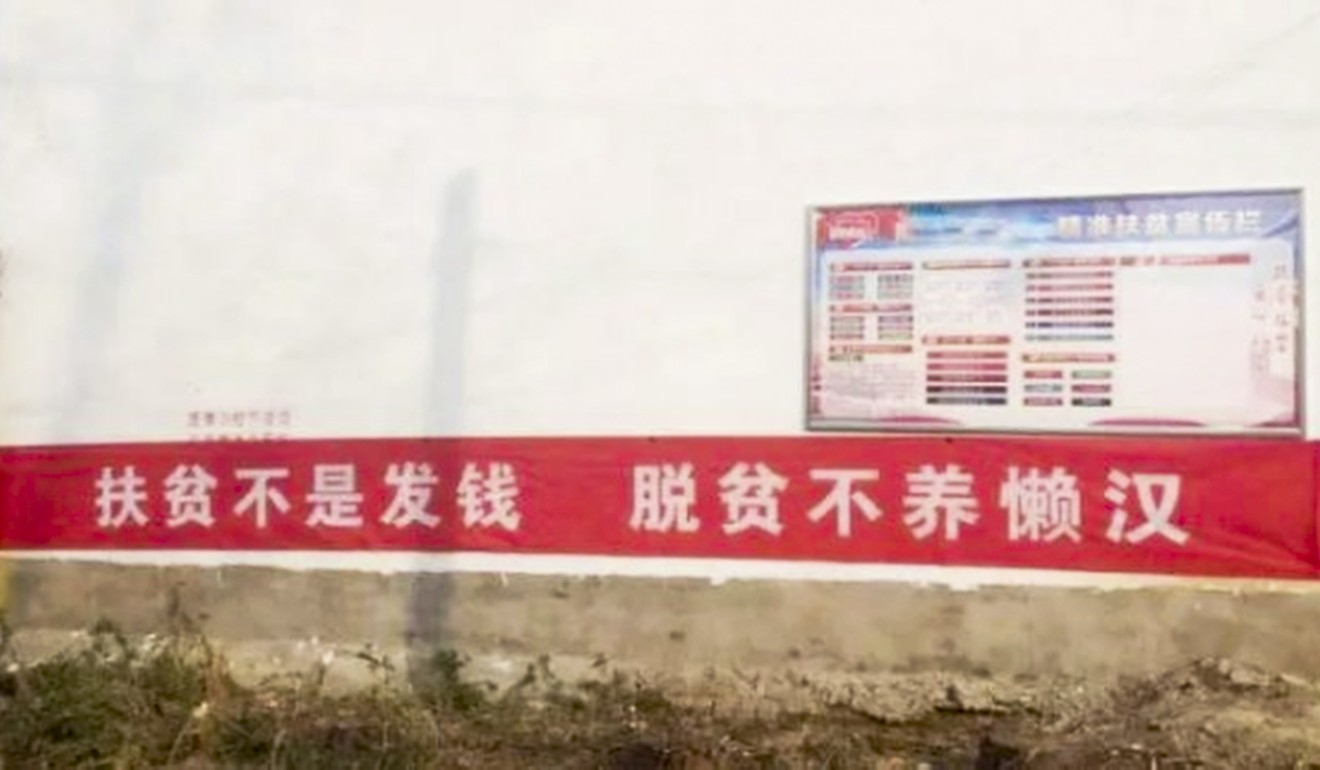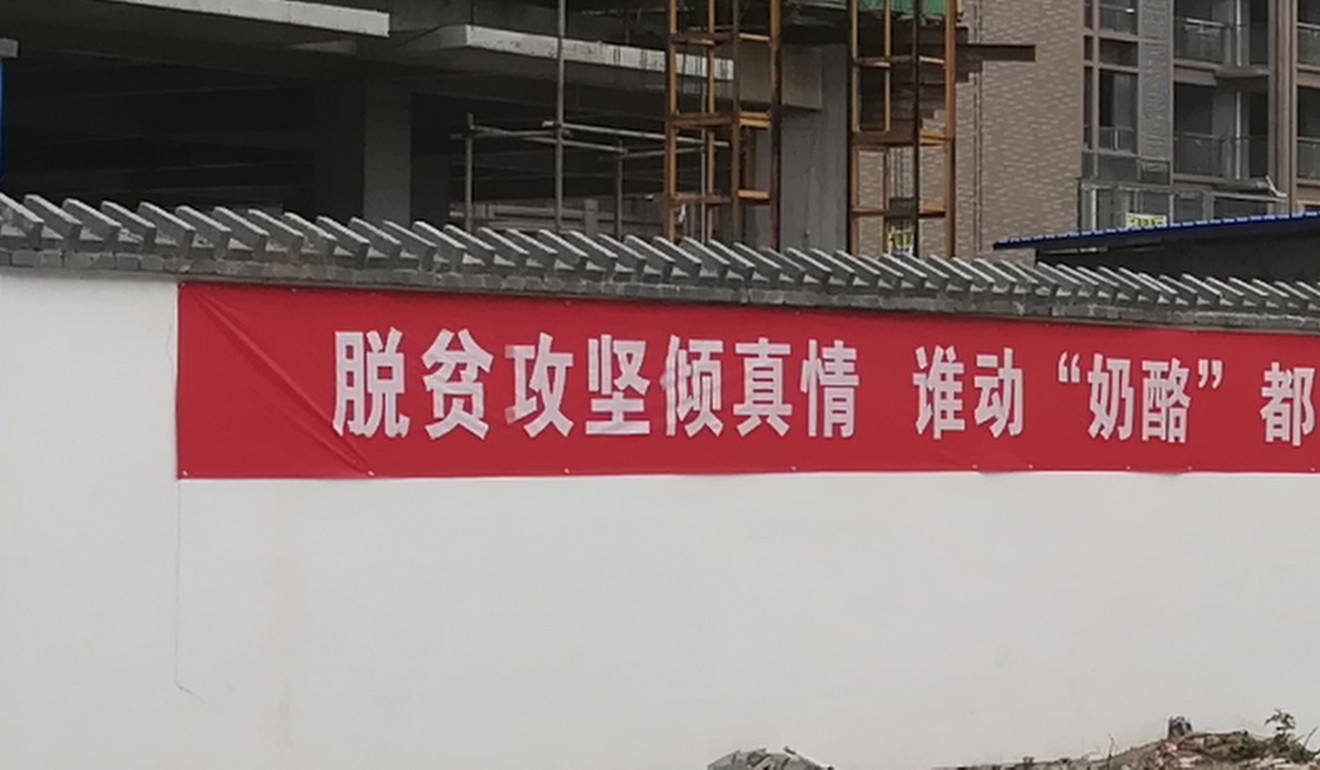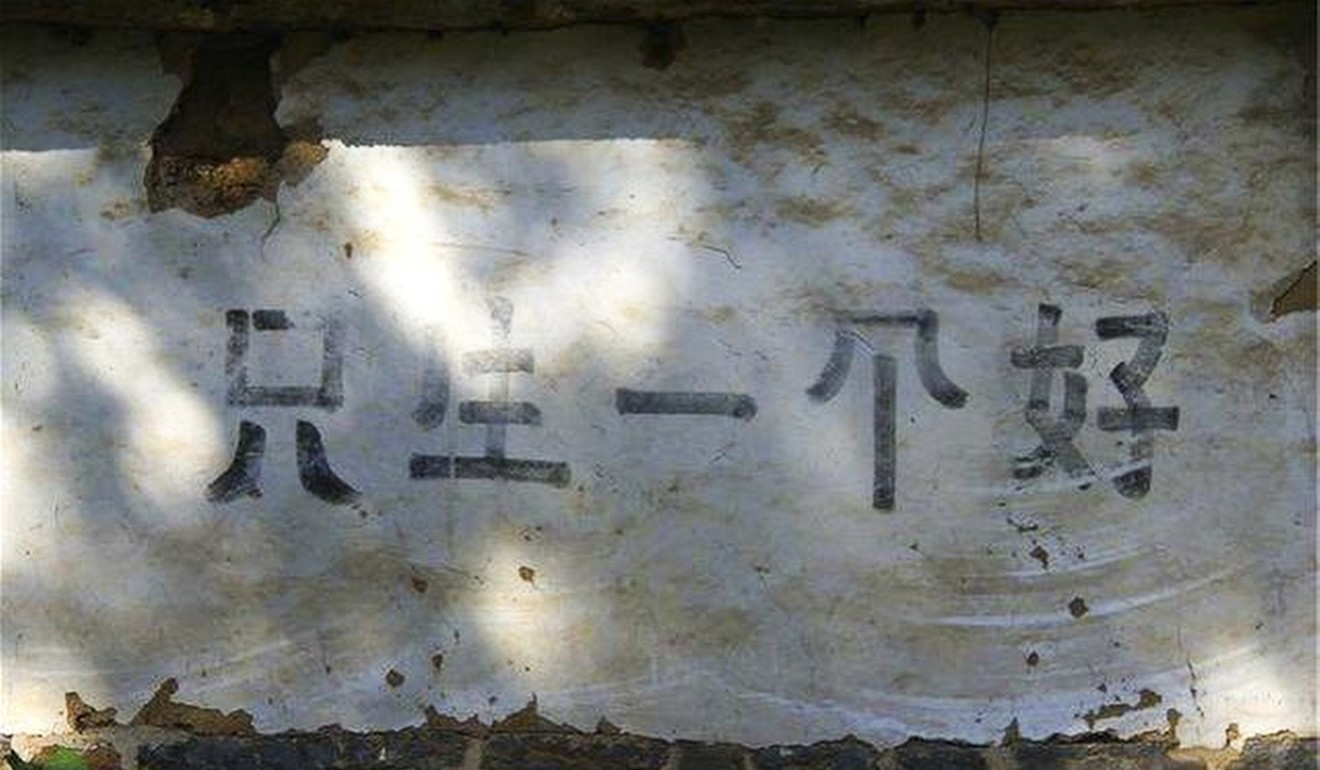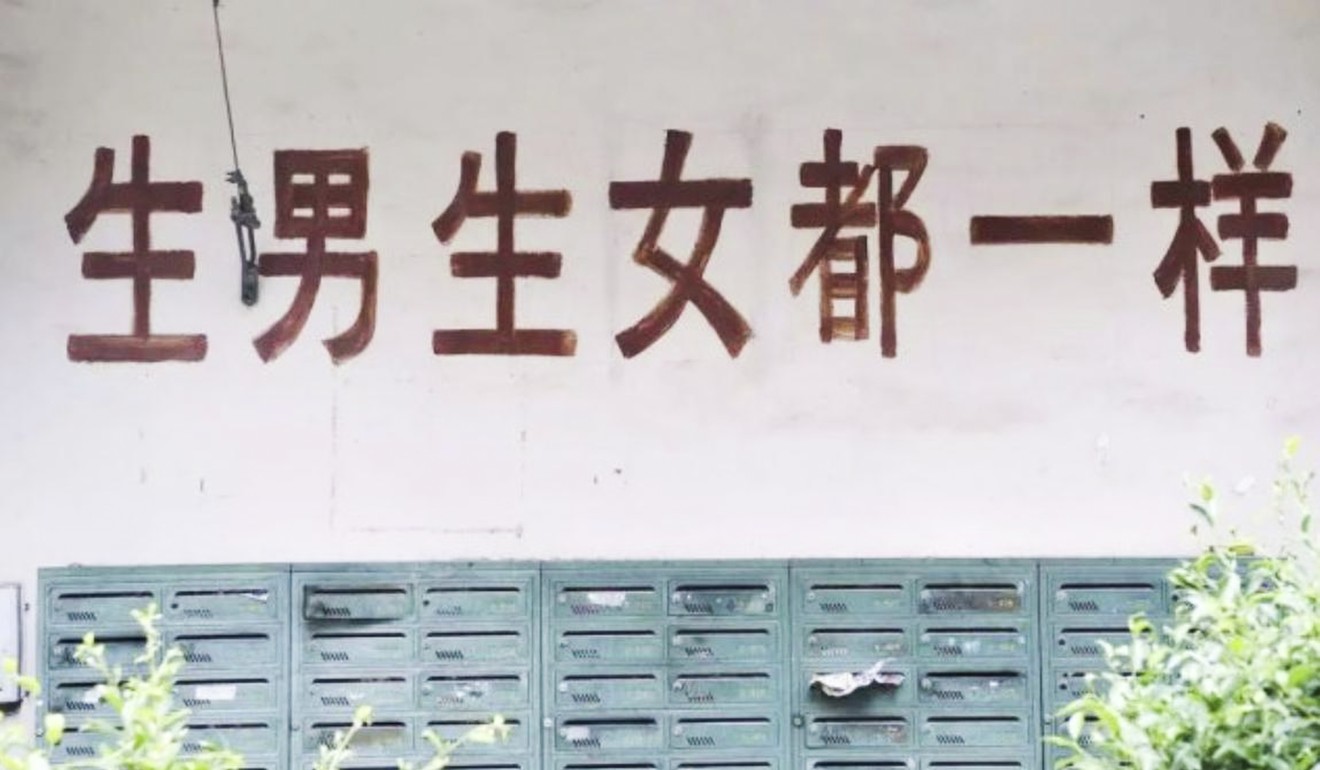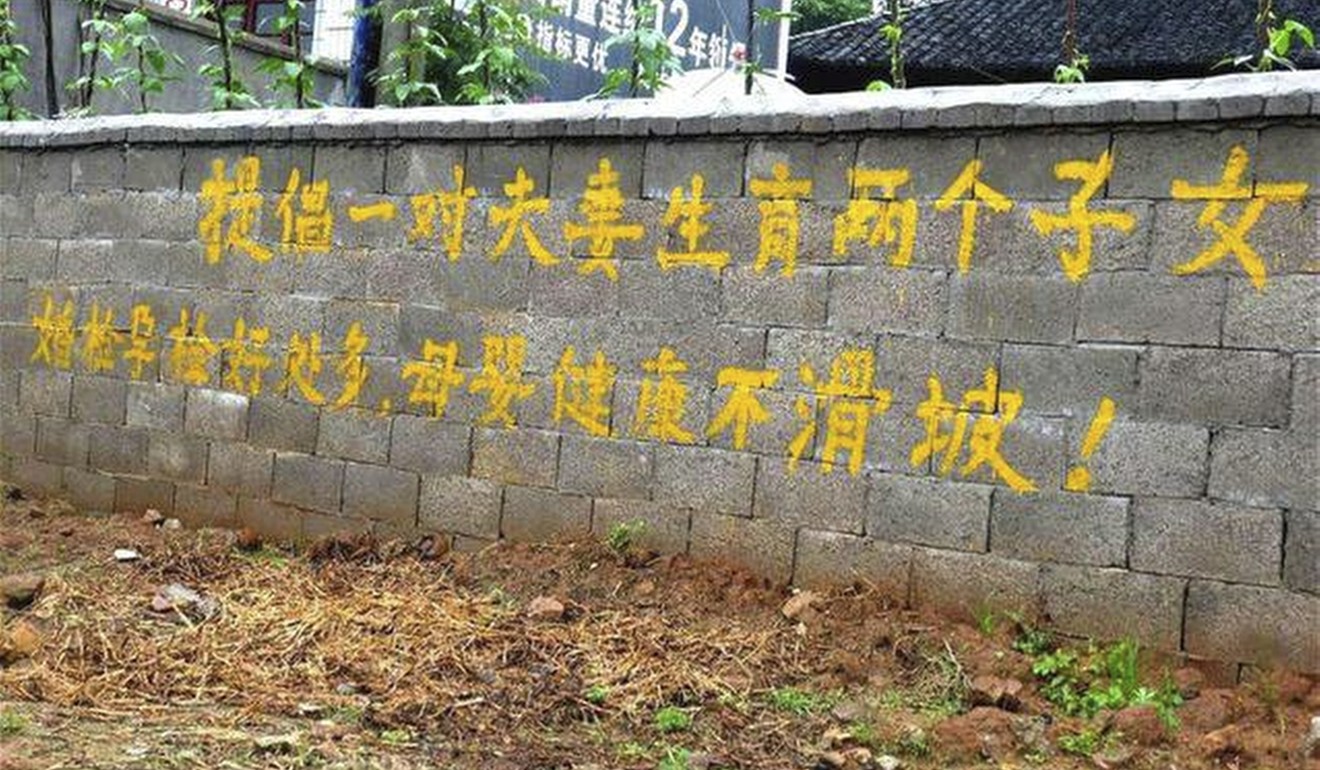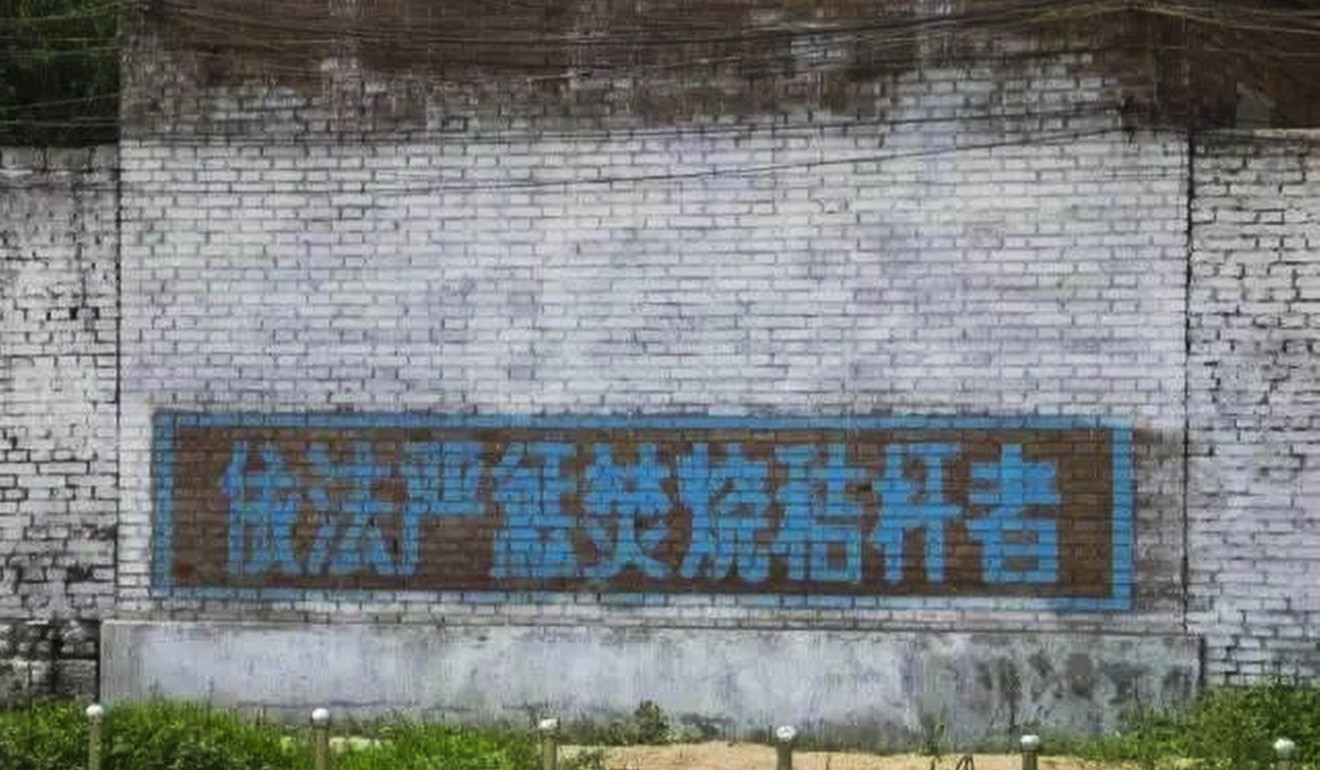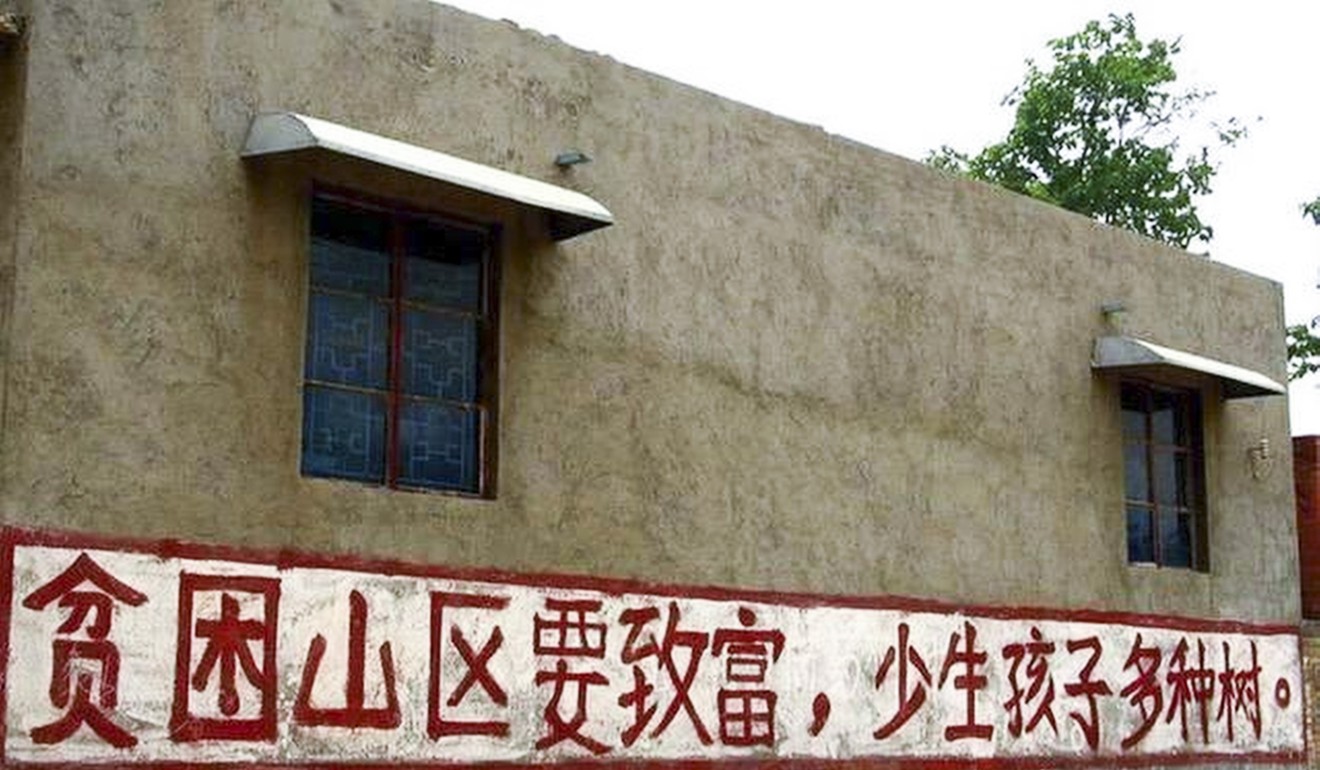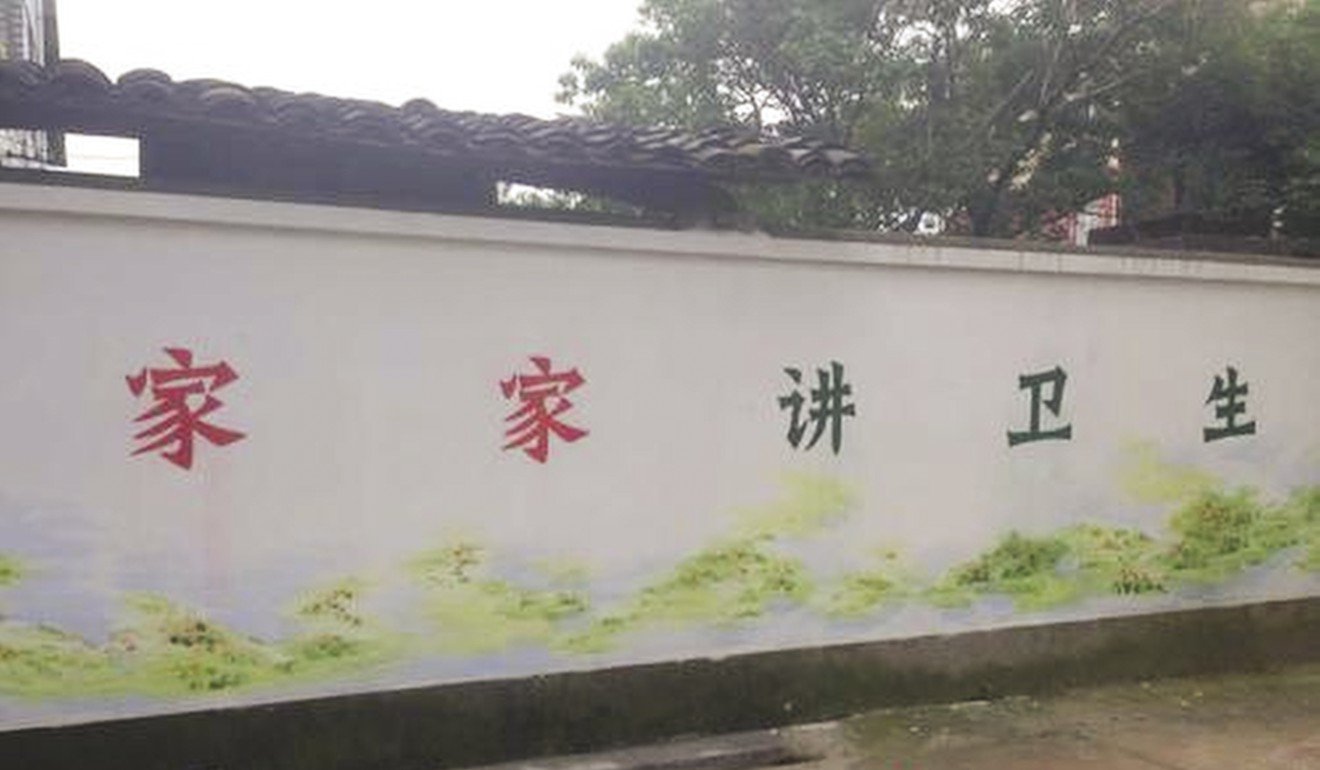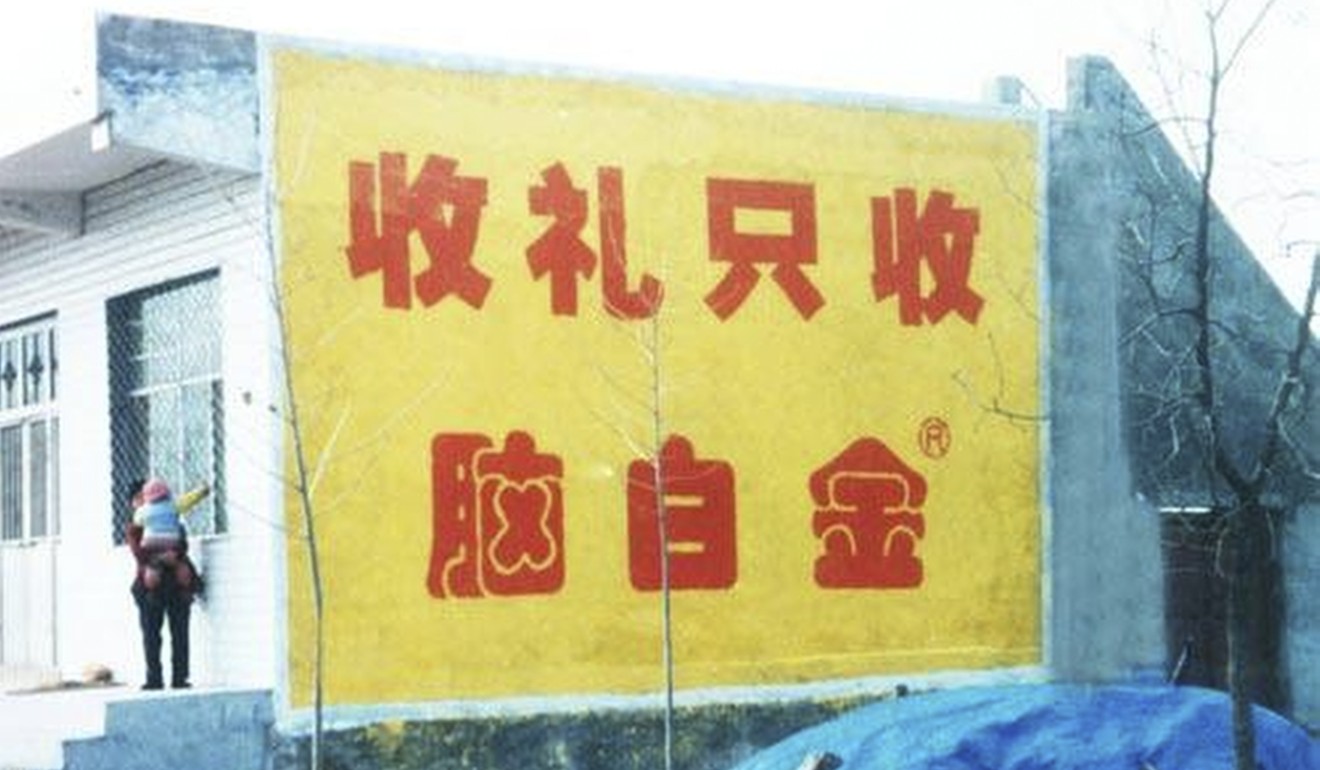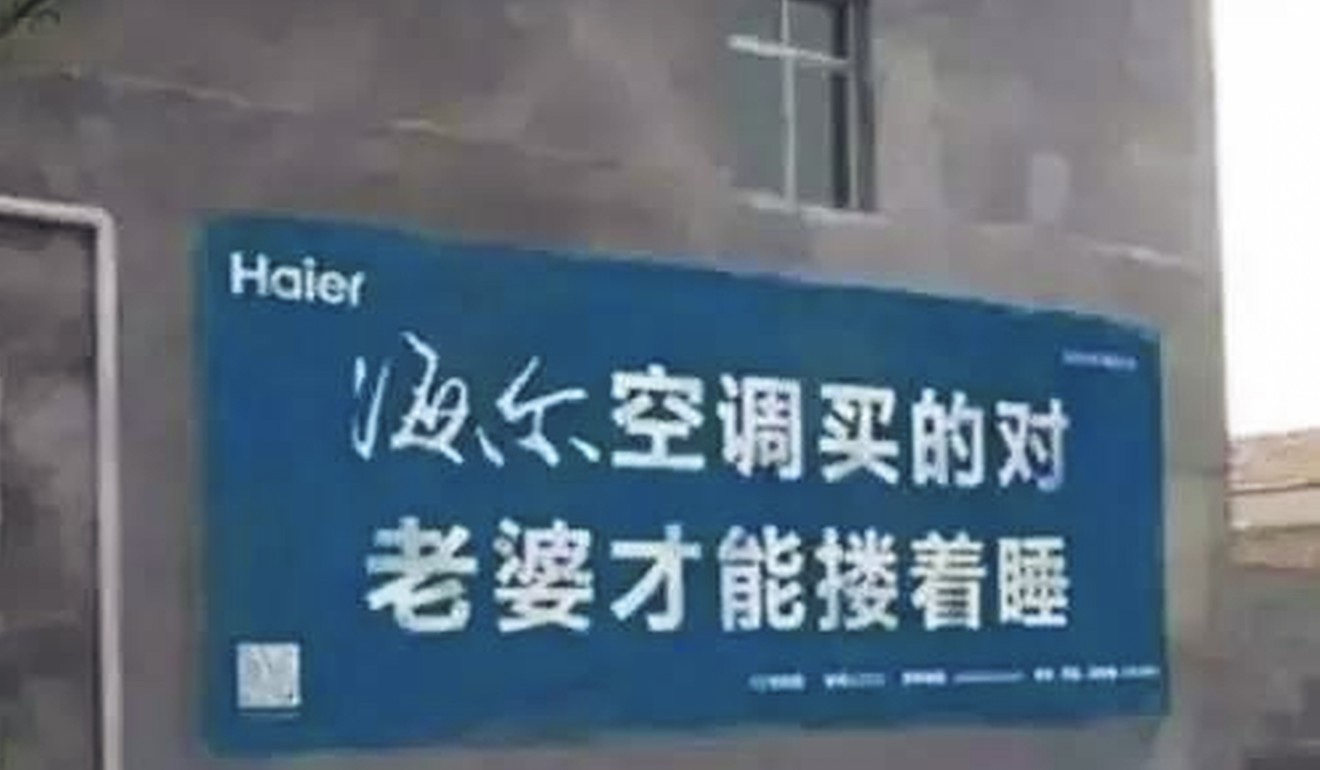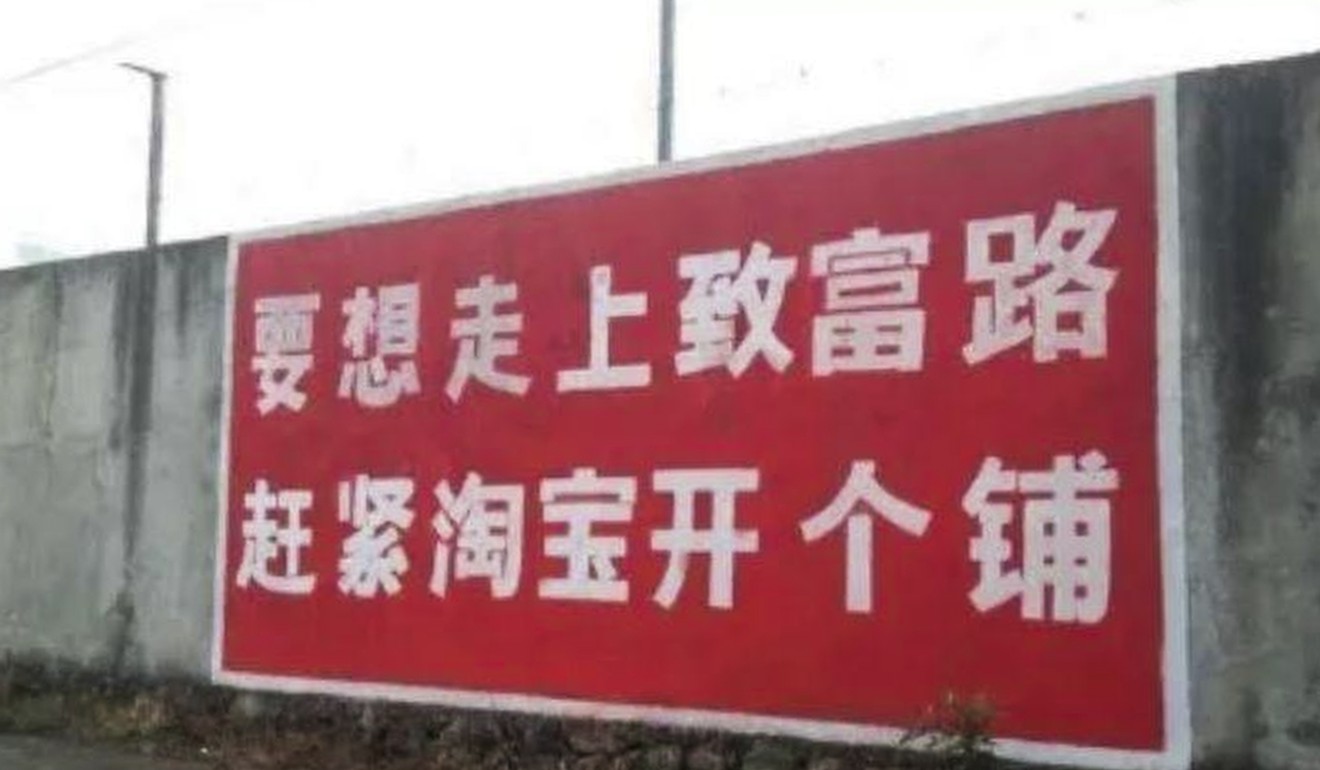From the one-child policy to online shopping: the catchphrases of 40 years of Chinese slogans
 By Mandy Zuo From South China Morning Post
By Mandy Zuo From South China Morning Post
- Painting slogans on walls has long been a valued messaging practice in China
In the 1980s, they were used to publicise official campaigns such as the war on poverty. In recent years, they have been used to promote commercial products, from car brands to dietary supplements.
Whether by the government or business, slogans on walls have long been a popular way of getting a message across in China, particularly in rural areas.
Here’s a look at how the use of slogans and advertisements in rural areas has changed in China over the past four decades.
Poverty alleviation
In the 1980s and 1990s, people were encouraged to work diligently to lift themselves out of poverty.
Many made money by starting businesses and becoming role models, and there was shame associated with a lack of material improvement, with slogans such as: “Those who get out of poverty are honoured. Those who remain in poverty prove themselves incapable.”
In the 2000s, the government became richer and started offering financial support to poverty-stricken areas and individuals.
Some local authorities took the money from the top but failed to act proactively improve livelihoods, raising concerns about overreliance on handouts. The apprehension was reflected in a slogan of the era: “Poverty alleviation is not paying money. It’s not supporting lazy people.”
When President Xi Jinping set 2020 as the deadline for eliminating poverty, government measures became more specific and household-based.
Family planning
In 1982, Beijing announced that family planning controls, a reference to its notorious one-child policy, would become a national strategy. Slogans warning couples against a second child were found on the walls of villages nationwide.
The policy’s strict implementation of the measures led to numerous baby girls being abandoned or even killed because of a traditional preference for male heirs. A round of publicity about gender equality therefore followed.
With Chinese society quickly ageing, however, the authorities finally relaxed the policy in 2014, allowing each family to have up to two children.
Environmental protection
Slogans for environmental protection started appearing in rural China in the 1990s, but awareness was largely confined to the planting of trees, to counter the destruction of large areas of forest, and the banning of the practice of burning straw, which causes air pollution.
Environmental protection education became more specific in the 2000s.
For instance, households and companies were advised to control waste emissions. In the late 2000s, the smog problem became a concern of Beijing residents as well as people in other parts of China.
Tackling pollution has been a top priority for China since Xi took power in 2012. Today, his remark, “green mountains and clear water are equal to mountains of gold and silver”, has been featured on walls across the country.
Commercial advertising
Since the late 1990s, village walls have ceased to serve solely as a medium for publicising government policies. Some of them have become advertising boards.
Farming materials, dietary supplements and private clinics were the first products and services to be advertised on walls; then came home appliances and telecommunications services.
In the 2000s, domestic car makers started occupying the territory, encouraging well-off rural families to travel the same road as their urban counterparts.
As China entered the internet age, rural residents became familiar with online shopping. Some began selling farm produce on online platforms such as Taobao. (Taobao is a unit of Alibaba Group Holding, the owner of the South China Morning Post.) Mobile payment systems such as Alipay have also been prevalent.

